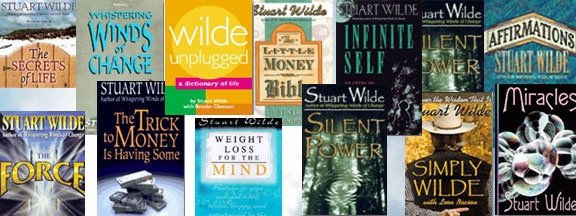Improve Your Writing for Pleasure or Profit
Writing is all about using words to create mental pictures and evoke emotions. If you want to write for profit it helps to first read a few of the great works.
I’m a true blue Francophile, I love France, at school I wrote my main paper on the role of the bourgeoisie in the French Revolution. People think of it in terms of Les Miserable and hags knitting at the foot of a guillotine, but what people don’t usually know is that the French Revolution started in fact, as a rebellion of the middle class. Only later did it devolve into the blood lust of the rabble.

In my late 20s I studied French literature, Rabelais, Flaubert, Stendhal, Proust and Baudelaire, the 19th Century poet who wrote the famous work “Les Fleur du Mal”—The Flowers of Evil, and I was very influenced by Rimbaud, he wrote all his famous works as a teenager.
It was these French writers and the Afro-American writer James Baldwin, and Hubert Selby Junior, who wrote the Last Exit to Brooklyn, along with the English war poets Sassoon and Brooke and Lawrence Durrell who wrote the Alexander Quartet, that inspired me to become a writer. Durrell used a lot of words as that was the style in his age, but what he wrote was very beautifully crafted. He was one of the greatest writers that ever penned words to paper.
I saw how elegantly these writers organized words and how they drew pictures in a reader’s mind—funny pictures like cartoons, or moving poignant pictures; pictures of beauty, love, and sensuality, or the heroism of daily life that evokes emotions bringing readers to various conclusions and understandings.
If you haven’t got time to read Tolstoy’s War and Peace then just read twenty pages of some of the great works watching for the style and the writer’s voice, so you learn.
I learned to write books and songs very fast. A full-size book takes me about a week or less, my book God’s Gladiators took me four days and nineteen hours, writing nonstop for 23 hours a day. The lyrics and storyline I wrote to the operetta Heartland by Tim Wheater, took me just less than four days, again writing 23 hours a day.
And when writing I learned to use as few words as possible. A paragraph is like a railway track, every word is a log on the rails that the reader has to hop across. The fewer logs the more fluid and entertaining your writing.
I wrote my first book when I was nineteen, and my second book Sacred Clown in my twenties, neither came out, my first published work (Miracles) appeared when I was thirty-eight.
I calculated recently that I’ve written over five million words, an average paperback nowadays is 60,000-70,000 words, so I’ve done 80+ books worth. Phew!
Train yourself in this way: write a paragraph as an incident using only forty-six words that includes a dog, a priest, a broken egg and a lily. The forty-six words must be exact.
“I was watching a priest on a tow path by a river, he was tossing an egg in his hand up and down, with him was a black and white collie. The priest bent down to admire a lily, the egg broke on the dog’s head”. (46)
It’s all about pictures.
Try this: write a para’ of sixty-one words to include a train wreck, a cheese sandwich, a seven-foot tall basketball player with a lisp, and a one-legged woman with a ladder.
It must be short, informative, funny and/or moving and exactly sixty-one words.
Then if you want to get really fancy try another task with less words, let’s say, the history of the world in twenty-one words.
“The history of the world has come and gone; some was pain, some was song, none of it took very long.” (21)
Setting yourself these small exercises teaches you to be brief, precise and poignant, you learn to create the pictures with as few words as possible.
When you go on to writing pages at a time do this:
First say what you want to say, paragraph one. Then briefly extrapolate on what has been said, offering ideas and examples, paragraphs two and three. Then answer the reader’s doubts or questions, and end the page by concluding what you have written with an added point—the wrap and pack show. Then go to page two, do the same. When you get to page 220 your tome is finished—mail to publisher requesting check.
Your voice is your style, be brave, develop an original voice, different to others. Conformity is a disease of the dull witted. I once wrote about driving down the Fulham Palace road in London a bit drunk. I described it saying “I was under the affluence of incahol at the time”, which is how a person that’s a bit tipsy might speak. It’s so much more entertaining than saying, “I was under the influence of alcohol”—see what I mean jelly bean?
When you finish what you have written don’t be attached to your words, go back and delete 25%, be brutal—remove logs, watch for repeats, watch for where you are talking down to the reader, or you are being pompous, or condescending (a big no, no); watch where you are not clear and precise, watch for a lime green poison called waffle. Never be scared or irritated to delete parts of what has been written if it does not follow the short—sharp—witty—poignant—informative, rule.
“Buy for now.” (As a shop sign might say at the time of the sales) Yeh man! Buy for now. Stuie…W.
{Editor’s note: Stuart Wilde has written twenty books, 60+ audios CDs, two films, and the lyrics to seven music albums. SW has also written 800+ articles some are here, others are at stuartwilde.com and the rest have been deleted over the years. SW never keeps a long-term record of the stuff he’s done. He believes words and ideas exist eternally in the reader’s mind, he quotes Omar Khayyam, see below}.
“The Moving Finger writes; and, having writ,
Moves on: nor all thy Piety nor Wit
Shall lure it back to cancel half a Line,
Nor all thy Tears wash out a Word of it”.

© Stuart Wilde 2011
